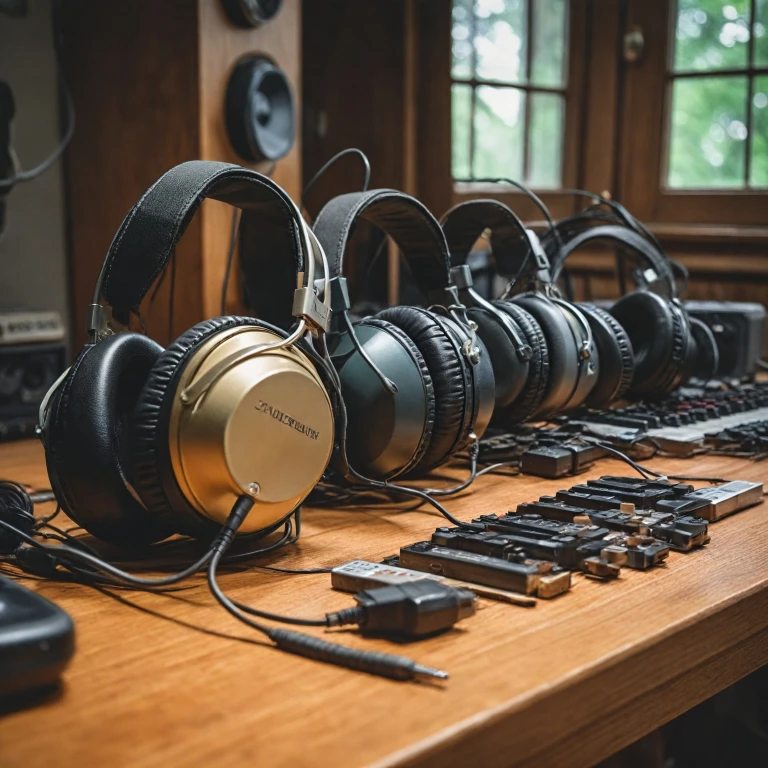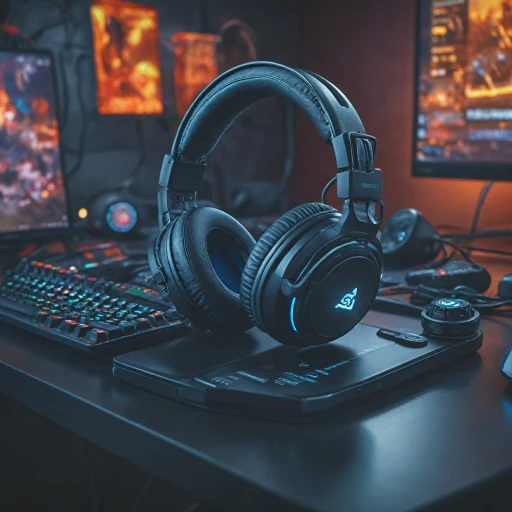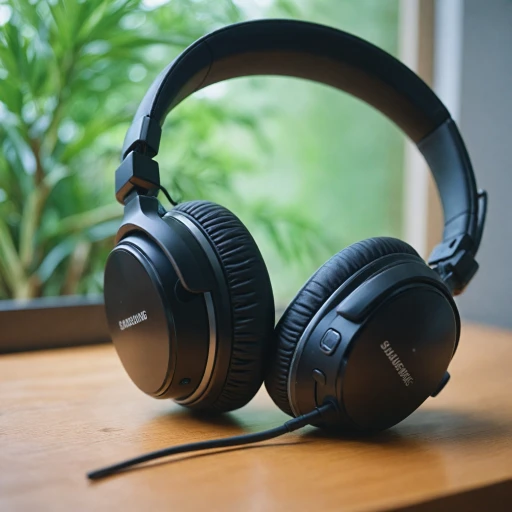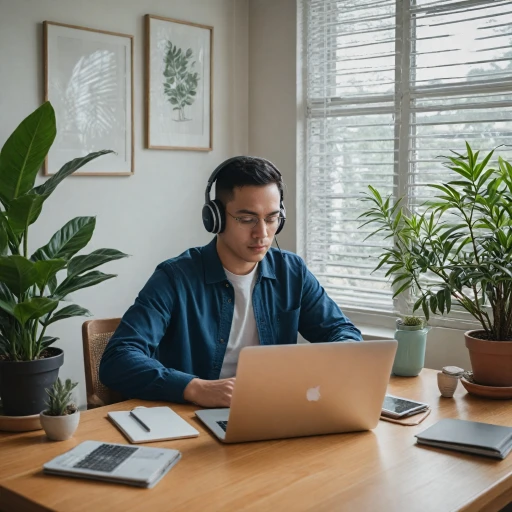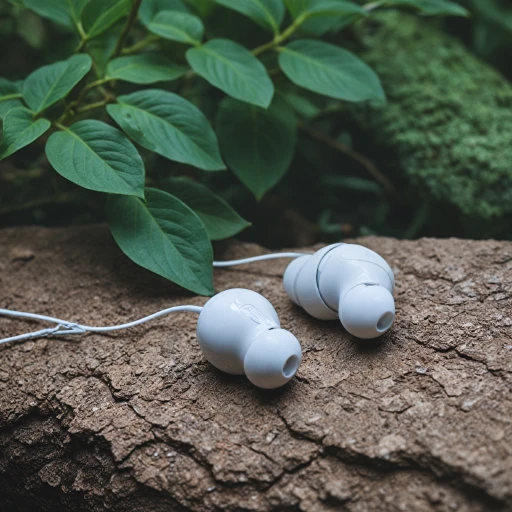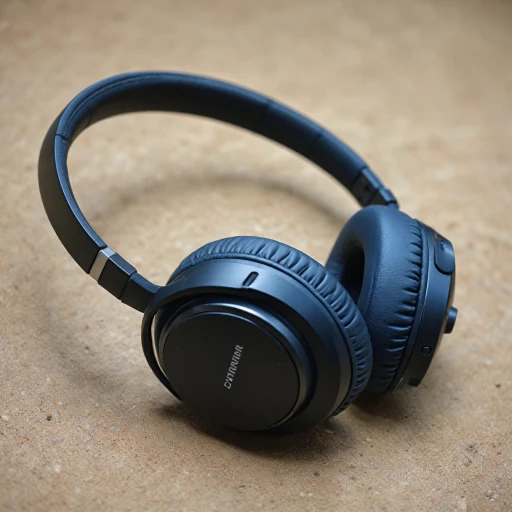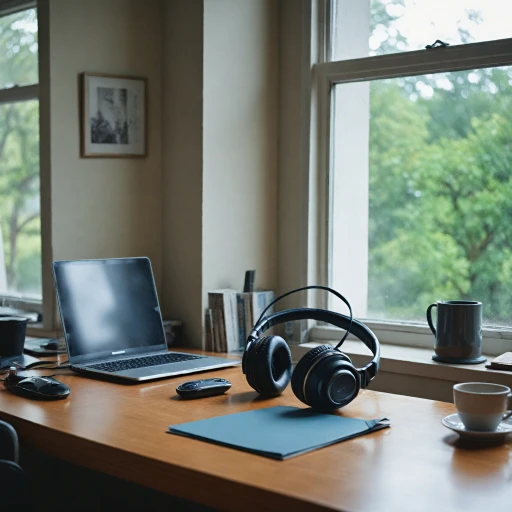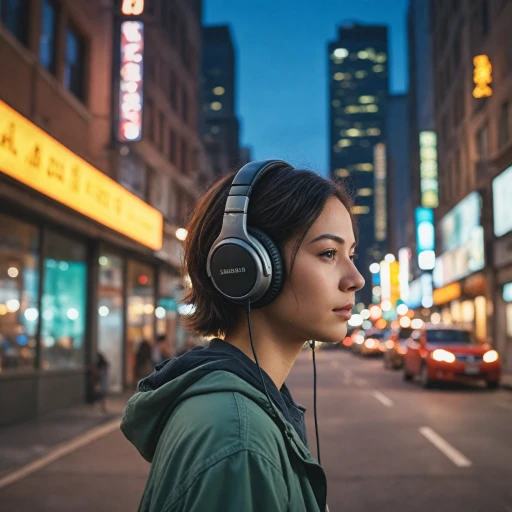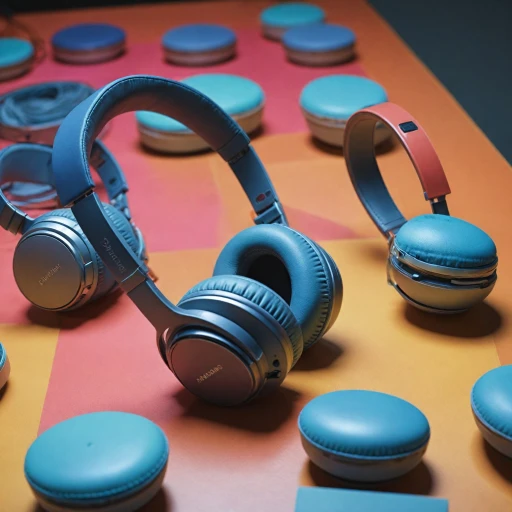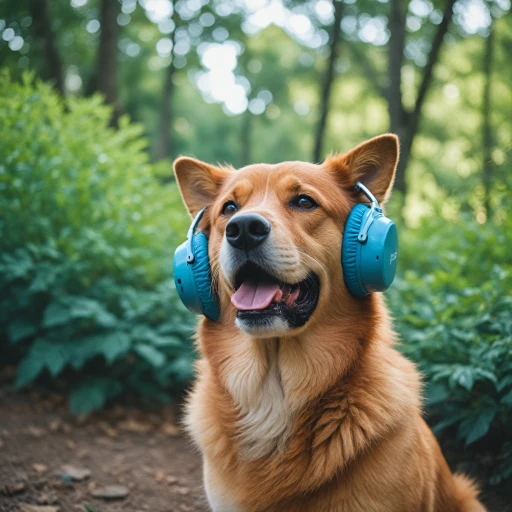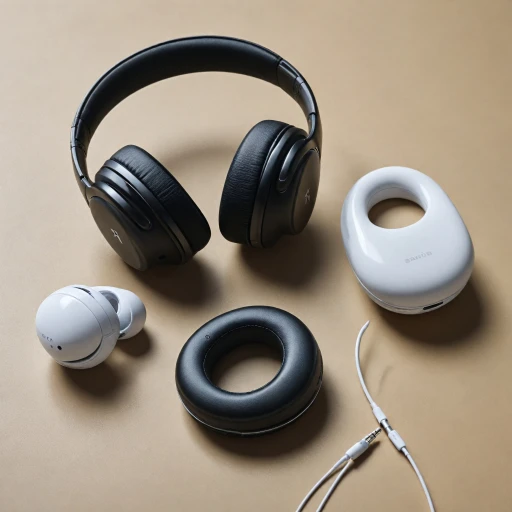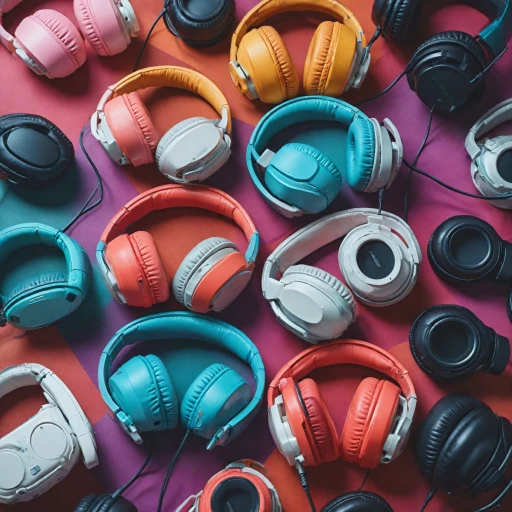
Understanding Noise Canceling Technology
The Mechanics of Noise Canceling: A Comprehensive Overview
Noise canceling technology has revolutionized the way we engage with audio, especially in environments like studios where sound quality and precision are paramount. For musicians and audiophiles alike, understanding this technology is crucial for selecting the best studio headphones tailored to their needs.
Noise canceling works primarily in two forms: passive and active. Passive noise isolation involves the headphones' physical design and materials to block out external noise. Over-the-ear designs, such as closed headphones, often excel in this respect, providing significant isolation which enhances the audio experience by minimizing external sound leakage.
On the other hand, active noise canceling (ANC) uses sophisticated electronics. It employs built-in microphones to capture the ambient sounds and then generates counter signals to effectively cancel out these noises. The EPOS Impact 1000 is an excellent example of headphones utilizing advanced ANC technology to deliver outstanding audio clarity.
Besides reducing disruptive noises, effective noise canceling headphones contribute to maintaining an immersive listening experience. Their impact on sound quality is significant; thus, selecting the right headphones often involves testing for a desirable balance between noise cancelation capabilities and audio fidelity.
While considering noise canceling headphones, musicians will want to pay attention to the frequency response. A wider frequency range ensures a more accurate reproduction of the audio spectrum, essential for music production and critical listening. Brands like Beyerdynamic Pro, Sennheiser Pro, and Audio Technica are renowned for offering headphones with excellent frequency responses, ensuring every note is captured with precision.
Key Features to Look for in a Musician's Headset
Essential Characteristics for Musicians' Headphones
When about to purchase a pair of headphones for music production or studio sessions, it's crucial to pay attention to certain features that cater specifically to a musician's needs. The best studio headphones are not just about noise cancellation but also about delivering high-quality audio that captures the intricacies of sound.
- Frequency Response: A wide frequency range is essential for musicians to capture the true essence of their music. It's important to consider headphones with a wide, flat frequency response like the Beyerdynamic Pro to ensure accurate sound representation.
- Closed vs. Open Design: Closed headphones provide excellent noise isolation, making them ideal for studio environments where external noise can interfere with monitoring. Open designs, on the other hand, offer a more natural sound but at the cost of less isolation.
- Sound Quality: Superior sound quality should be a top priority, as it affects how well you can hear details like bass and treble. Reading reviews, like the ones for Audio Technica and Sony MDR models, can offer insights into which headphones might deliver the best audio performance.
- Comfort and Fit: Long studio sessions demand headphones that are comfortable and have a snug fit. Consider ear monitors that don't exert too much pressure on the ears and allow for prolonged listening periods without discomfort.
- Cable and Connection: Wired connections tend to offer more stable audio quality than wireless. It's important to ensure your headphones have a durable cable, with options for detachable or replaceable cables being a plus.
Another consideration could be the price point, balancing quality with affordability. Some musicians might opt for alternatives based on their specific noise canceling needs.
By taking into account these features, musicians can select headphones that not only deliver good sound quality but also enhance the overall music production experience.
Comparing Popular Noise Canceling Headphones
Evaluating Top Picks in Noise Canceling Choices
Choosing the right headphones for your studio sessions requires evaluating multiple options to ensure you achieve the best audio experience. As a musician, understanding how popular brands stack up is crucial to making an informed decision. In recent years, there has been an impressive array of noise canceling headphones in the market. Here, we delve into some renowned names:- Beyerdynamic Pro Headphones: Renowned for their exceptional sound quality, these headphones are lauded for their wide frequency response and sturdy build. Their closed design helps with noise isolation without compromising on comfort.
- Audio Technica ATH Series: These headphones offer a balanced audio response that's perfect for studio settings. They emphasize clarity and are often praised in reviews of the best headphones for both monitoring and mixing.
- Sony MDR: Known for their bass response and durable design, Sony MDR models provide effective noise cancellation and are favored for their comfort during extended listening sessions.
- Sennheiser Pro Range: With high-quality sound and reliable performance, Sennheiser’s pro models are a top choice for music production professionals. Their headphones excel in providing a robust audio experience, ensuring impressive sound quality whether in a quiet studio or a bustling environment.
The Impact of Noise Canceling on Sound Quality
The Influence of Noise Canceling on Audio Clarity
When evaluating headphones for music production or studio monitoring, the impact of noise canceling on sound quality is a critical factor. While noise canceling technology can enhance your listening experience, it's important to understand its effects on audio clarity and response. Noise canceling headphones work by using built-in microphones to pick up ambient noise and then producing sound waves that cancel out these noises. This feature is particularly beneficial in noisy environments like busy studios or during live performances. However, noise canceling can sometimes alter the sound signature, affecting the frequency response. This means that certain audio ranges, like bass or treble, might not be as prominent compared to open-back or non-noise canceling options. For a pro musician or an audio technician, maintaining accurate sound monitoring is crucial. Key Points to Consider:- Frequency Response: Pay attention to the frequency range and response of the headphones. Some models, like the Beyerdynamic Pro or Audio Technica ATH series, are known for their consistent frequency response even with noise canceling.
- Sound Isolation vs. Noise Canceling: While closed headphones provide passive noise isolation, ensuring minimal leakage, comparing these with active noise canceling options is worthwhile.
- Testing Multiple Brands: Review different models like the Sony MDR or Sennheiser Pro, analyzing their reviews to gauge how noise canceling might impact the sound quality. It's beneficial to test in environments similar to where you'll use them most frequently.
- Wired vs. Wireless Options: Wireless models often come with slightly different audio quality due to connection interference or compression. Hence, exploring wired headphones might offer the desired sound fidelity.
Tips for Testing Headphones Before Purchase
Evaluating Headphones for Optimal Performance Before Buying
When investing in headphones, particularly those designed for studio environments or noise isolation, it is essential to test them thoroughly before making a purchase. Here are some practical tips to ensure you select the best headphones that meet your specific needs:- Check the Sound Quality: Bring your own device and listen to music you are familiar with to assess the sound. Different genres can highlight various aspects of quality, such as bass response and clarity in the mids and highs.
- Evaluate Noise Isolation: Noise cancelation options vary widely in effectiveness. Spend time in different environments to see how well the headphones isolate sound in noisy settings versus quiet ones.
- Assess Comfort and Fit: The design of the ear cups and headband can dramatically affect comfort, especially during extended listening sessions. Ensure the headphones do not exert excessive pressure on your ears or head.
- Inspect Build Quality: Examine the materials used in the construction of the headphones. Durable materials can withstand the rigors of studio work and frequent transport.
- Test Wired and Wireless Connections: For those who prefer a connection wired, test how easily the cable attaches and detaches, and check for any static or interference. Wireless models should be tested for Bluetooth connectivity and battery life.
- Review Professional Opinions: Seek out detailed reviews of models like beyerdynamic pro, sennheiser pro, and sony mdr. Expert assessments can provide insights into frequency response and overall performance in music production and studio settings.
- Compare Price to Value: While price can be a strong determinant, focus on value for money by comparing features, build, and sound quality rather than opting for the cheapest option available.
Budget Considerations for Musicians
Balancing the Budget Without Compromising Quality
When it comes to selecting the right noise canceling headphones for music production, musicians must consider balancing their budget with their need for top-notch audio quality. While a higher price often means more advanced features, there are several budget-friendly options that do not sacrifice sound quality.- Affordability vs. Features: Cost-effective models often focus on essential features such as passive noise isolation and decent frequency response. Headphones like the Audio-Technica ATH series offer a great balance of price and quality, providing a good foundation for pro audio needs.
- Studio Headphones Types: Depending on whether you need closed headphones for tracking or open headphones for mixing and listening, prices and features can vary. Ideally, monitor headphones should provide a flat frequency response for accurate sound reproduction, as seen in brands like Studio Beyerdynamic and Sony MDR.
- Brand Choices: Top brands often have budget lines that incorporate expertise from their higher-end counterparts. Sennheiser Pro and Beyerdynamic Pro lines, for example, offer accessible options while maintaining robust design and good audio output.
- Connection Considerations: While wireless headphones offer flexibility, wired options usually provide a more reliable connection and consistent sound quality, making them a popular choice for studio environments.
- Review Best Options: Before making a purchase, it's beneficial to read reviews best suited for your specific music requirements. Comparison guides often feature pros and cons, assisting in navigating the myriad of available options.

